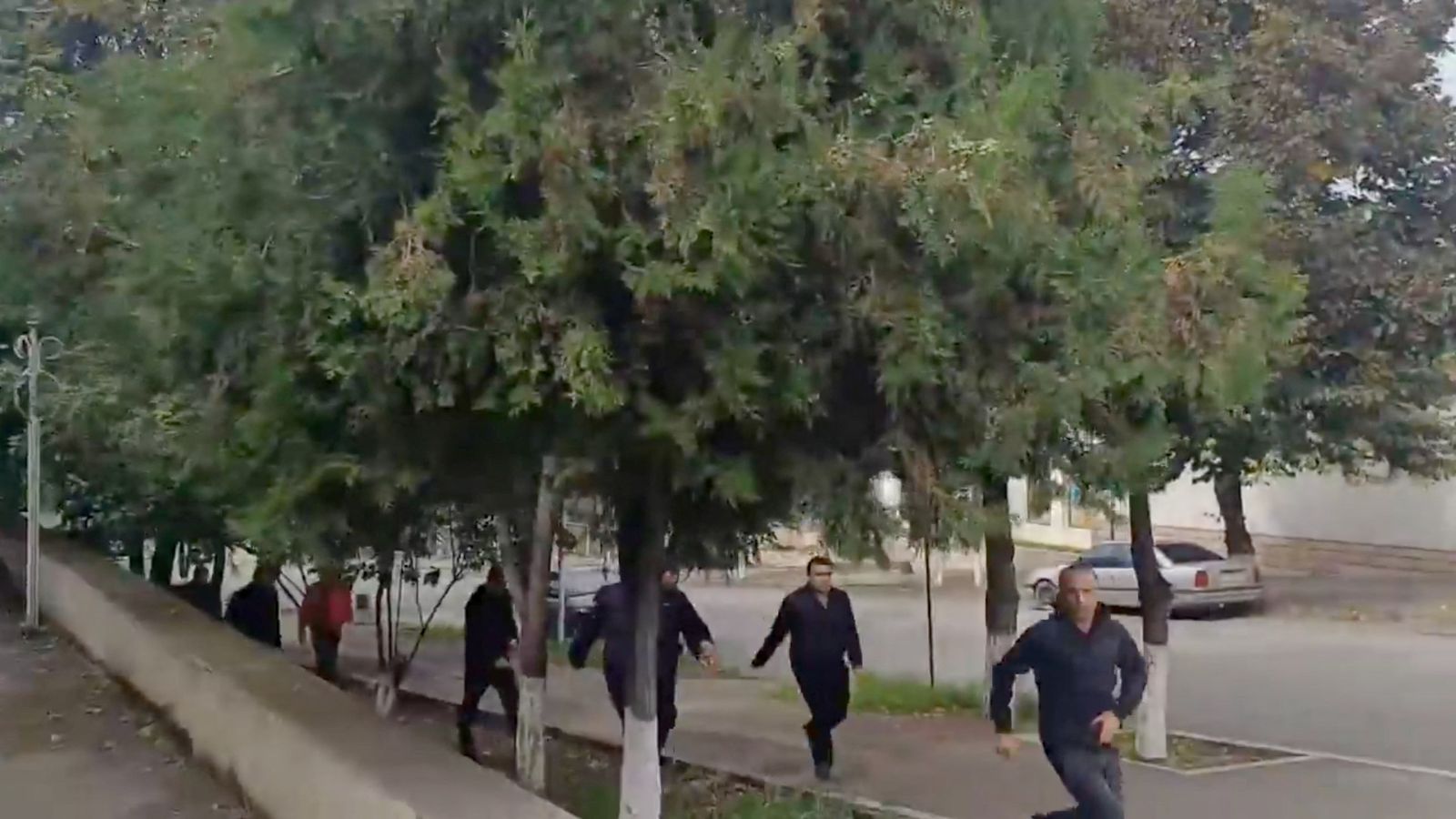Azerbaijan has begun targeting Armenian military positions in the Nagorno-Karabakh region, in what it is calling an “anti-terrorist operation”.
There are fears the action could lead to a new war in the territory, which is internationally recognised as Azerbaijani.
Part of it, however, is run by breakaway ethnic Armenian authorities who say it is their ancestral homeland.
It has been the focus of two wars since the collapse of the Soviet Union in 1991, the latest of which involved six weeks of heavy fighting in 2020.
Azerbaijan’s defence ministry said it had begun its operation hours after four soldiers and two civilians died in landmine explosions in Nagorno-Karabakh.
The ministry said positions “on the front line” and Armenian “long-term firing points” – as well as combat assets and military facilities – had been “incapacitated using high-precision weapons”.
“Only legitimate military targets are being incapacitated,” it added.
Armenia has said its forces are not in Karabakh and describes the situation on its border with Azerbaijan as stable.
Loud and repeated shelling was audible on social media footage filmed in Stepanakert, the regional capital of Nagorno-Karabakh.
Ethnic Armenian officials said Stepanakert and some villages were “under intense shelling”.
The Karabakh separatist human rights ombudsman, Gegham Stepanyan, said the civilian population had suffered “multiple casualties” following strikes by the Azerbaijani military.
Just two days ago, Armenia’s prime minister said his country and Azerbaijan could reach a peace deal over Nagorno-Karabakh by the end of this year.
Armenia is calling on the UN Security Council to help and for Russian peacekeepers to intervene.
Russia, which brokered a fragile ceasefire following the conflict in 2020, has called for all sides to stop fighting.
Armenia has accused Moscow of being too distracted by the war in Ukraine.
‘Russia appears to have failed in its duties’ – analysis
Diana Magnay, Moscow correspondent
Azerbaijan’s supposed “anti-terror operation” represents a major escalation and could spark a third war between Armenia and Azerbaijan.
Despite Azerbaijan’s claims it is targeting military positions only, the Armenian administration in Nagorno-Karabakh has already released pictures of civilian casualties, including children, while the first few videos showing damage to civilian infrastructure in the regional capital of Stepanakert are beginning to trickle through.
The ethnic Armenian population in Nagorno-Karabakh has been starved of food and humanitarian supplies for nine months now, since the Azerbaijani authorities blocked the so-called Lachin corridor from Armenia through to Stepanakert which they are obliged to keep open under international law.
The Armenians in Nagorno-Karabakh have cried genocide, saying Azerbaijan is trying to starve them out of the region where they have lived for centuries.
Now the Azeris say they have opened humanitarian corridors via Lachin and elsewhere to enable Armenian civilians to escape their military operation.
If Armenians do leave, the proof will be whether they are ever allowed back to their homes. If not, that is indeed ethnic cleansing.
Russia, meanwhile, supposedly in charge of keeping the peace between Armenia and Azerbaijan since the last short and vicious war in 2020, appears to have failed in its duties, too preoccupied with the war in Ukraine to engage fully with its regional obligations.
Russia’s foreign ministry said it was given only minutes’ warning before Azerbaijan launched its offensive.
The latest tweet from a local journalist in Stepanakert makes for sorry reading: “I am charging my phone at the Republic Hospital in Stepanakert,” writes Marut Vanyan.
“Non-stop artillery shells are being heard. Doctor just passed by with bloody hands.”








